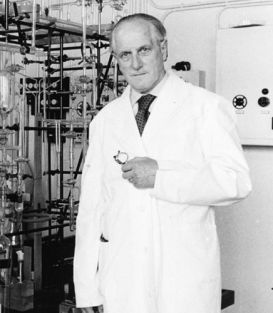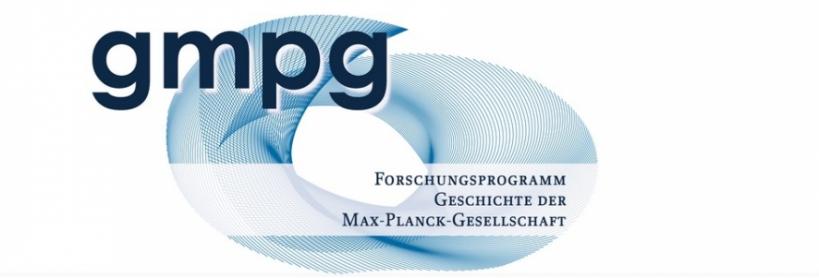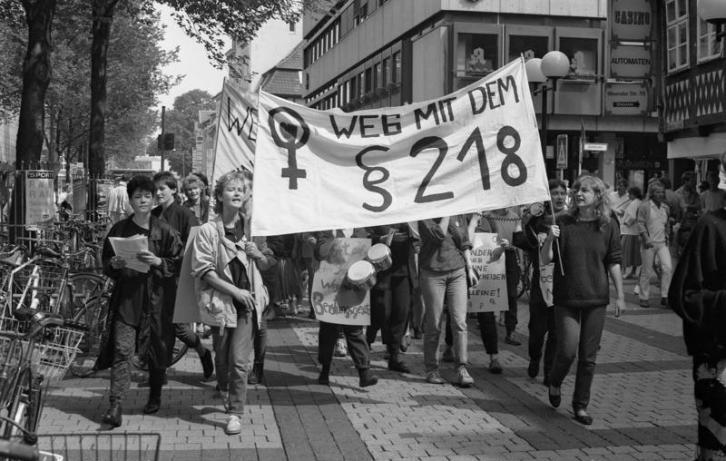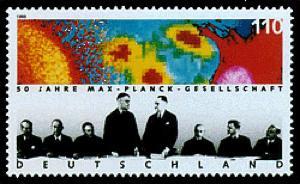Events & Workshops
All of our events and workshops can be found on the
GMPG Website
For a detailed description of the Research Program visit the

Friedrich Paneth (1887–1958), Director of the MPI for Chemistry, in front of appliances ca. 1956. Source: Archive of the Max Planck Society, Berlin Dahlem.
Research Program Coordinator Florian Schmaltz
The Research Program “History of the Max Planck Society” (Geschichte der Max-Planck-Gesellschaft, GMPG) emerged from Department I and its work in the historical epistemology of scientific institutions. Initiated by the president of the Max Planck Society (MPG) Peter Gruss, the program assumed its work with the approval of president Martin Stratmann in June 2014. Jürgen Kocka (Berlin Science Center), Jürgen Renn, Carsten Reinhardt (University of Bielefeld, Bielefeld) form a board with Florian Schmaltz as Research Program Coordinator.

To understand the fundamental and global changes in the modern world, a history of the twentieth century must acknowledge the tremendous impact of science and technology on political, economic, military, and social developments. In order to understand contemporary history of science, it is crucial to investigate Germany’s most prominent research organization: the Max Planck Society. Despite numerous institute chronicles and anniversary editions, supplemented by a few significant historical case studies, the MPG still largely remains terra incognita. The GMPG Research Program sought to open new and so far neglected vistas on the contemporary history, politics, and economic development of the Bundesrepublik Deutschland and its international relations. Who were the key actors and networks? Where has the MPG paved the way for innovations? What were its successes and failures? How are its institutional structures connected to its scientific achievements? Does the MPG represent a Sonderweg in Germany?
Perceived in a self-reflexive perspective of historical epistemology, the MPG not only conducts research but becomes itself a field of research. Reflecting the massive investments in education and science in Western societies after the Sputnik crisis of 1957, historians of science are confronted with an exponential increase in information. Such big data requires innovative methodological approaches in the digital humanities to manage the vast complexity of research activities. The research program approached this challenge with new tools and methods to cope with the complexity of big data by digitalizing numerous sources for full text research. In addition, bibliometric analysis was used help to identify innovative research fields and the impact of MPG researchers in the sciences.

Demonstration against § 218 of the German penal code making abortion unlawful in June 1988 in Göttingen. Photo: Bundesarchiv, B 145 Bild-F079091-0006 / CC-BY-SA 3.0.

German stamp marking the 50th anniversary of the Max Planck Society, 1998. Photo: Birgit Kolboske.
This research program aimed at a comprehensive analysis of the MPG's history embedded in the contexts of contemporary history and history of science. The research period under investigation covered the Society’s foundation in 1948 and ended with the presidency of Hubert Markl in 2002. Concerning the former presidential commission on the history of the Kaiser Wilhelm Society in National Socialism as well as the completion of the Aufbau Ost program, the investigation was extended until 2005. The research program had a focus on the dynamic interactions of research practice and institutional history; on the changes in working methods and research objectives of the MPG; and on its local and global networks and how these are embedded in science, society, and politics. Given that more than 80 institutes existed in 2002, plus 20 more that have been closed since 1948, the objective was not so much to investigate the history of individual institutes as a comprehensive approach allowing us to study clusters of institutes active in the same scientific field.